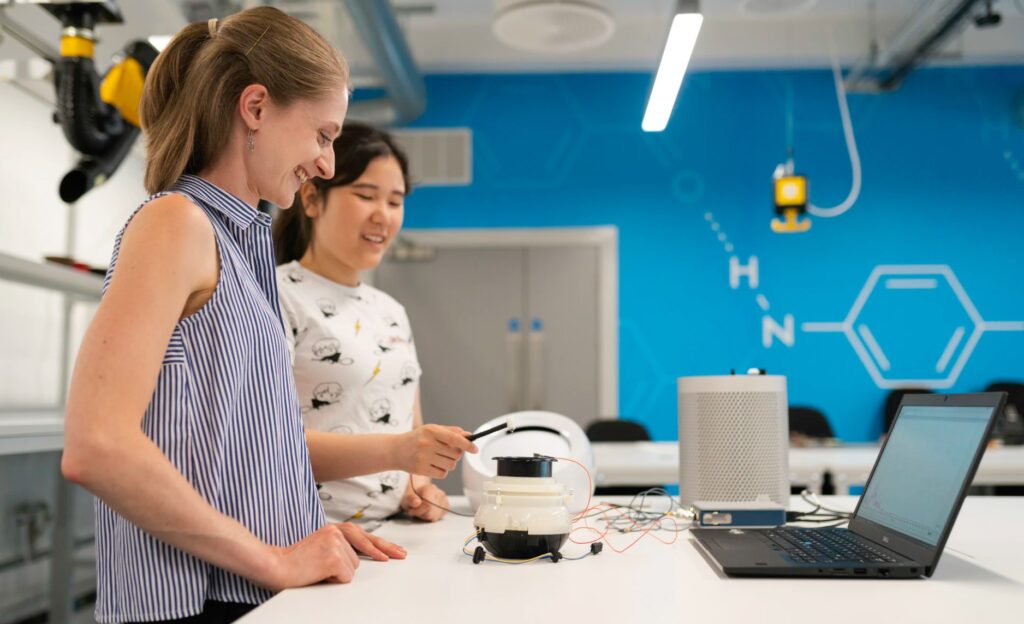Going to university isn’t just about landing a job when you graduate. But it is a big part of why you’re there.
The thing is, a lot of people get university degrees now. That means the competition for graduate jobs can be pretty tough. And having a relevant degree isn’t usually enough to get you into a good graduate job.
So how do you make yourself more competitive?
Show a potential employer that you’re interested in your field, proactive, and have some pretty great skills already, by getting some relevant work experience while you’re at university.
When should you start looking for relevant work experience?
If you’re doing a three year degree, late in your first year/early in your second year is good idea.
If you’re doing a four year degree, or a longer one, sometime in second year is a good plan.
What are your options?
There are lots of great options for getting experience, like:
- Take a practicum/placement unit as part of your degree
- Go on an overseas study experience
- Land a cadetship or internship
- Look for a relevant paid job while you’re studying
- Get involved in your student society/association
- Get into (relevant) volunteering
It’s a good idea to do a few of these things while you’re at university, so that you graduate with a nice combo of skills and experiences.
Now let’s look at each option in a bit more detail.

1. Take a practicum/placement unit as a part of your degree
Universities know that real life experience in a workplace makes you feel more confident when you graduate.
So most uni degrees will give you the option to do a placement or practicum unit while you study. Some universities will call this WIL – Work-Integrated Learning. The good thing about these units is that your university will help you find a relevant placement.
Some degrees allow you to choose placement units as electives, while other degrees (like medicine, nursing, teaching, and most allied health degrees) will have mandatory placement units. Either way, doing a practicum/placement unit is a great way to get some relevant work experience, with the support of your university, and with qualified, trained, vetted supervisors who want to help you learn and improve.

2. Go on an overseas study experience
Going on exchange is another great way to get relevant work experience, while also having a really good time.
There are two main types of overseas study experience:
Semester exchange (4-5 months)
This is what most people think of when they hear the word “exchange”. You usually study for a full semester at a university in another country. Some universities also give you the option to do industry projects or other work experience while you’re on exchange, which can be super helpful. If you have this option, it’s a very good idea to give it a go!
Short-term study tour (2-8 weeks)
This is where you go overseas for 2-8 weeks, usually during the university holidays. These exchanges are usually done with a small group and have a specific work experience or project focus. A lot less people know about short-term study tours, but they are great when you want to get some overseas experience while at university, but might not want to commit to a full semester away from home. They also look fabulous on your resume!

3. Land a cadetship or internship
Cadetships and internships are designed for university students. They allow you to complement your studies with paid work in a relevant area. And they can be amazing for getting ahead in your industry.
Cadetships
Cadetships usually include:
- one day/week of paid work during university semester
- (sometimes) more hours of paid work during university holidays
Some cadetships run for a year, while others run for several years. It depends on the employer.
And some unicorn employers will also pay your university fees for you, so do your research!
Internships
Internships are usually:
- held over the summer holidays
- full-time for the specified period (6-12 weeks)
- paid!
Most graduate employers (ie. employers that offer graduate programs) offer paid summer internships. And getting a paid summer internships is a really good stepping stone to a graduate position with one of these employers, if this is something you’re interested in.
Even if you decide to apply to a different graduate program, or to other jobs after university, a paid internship could give you amazing experience to help you stand out as an applicant. So it’s definitely worthwhile to do some research into where you could do a paid internship while you’re at uni.
It’s also important to know: in Australia, almost all internships that are not run through a university must be paid. If you’re suspicious that someone is offering an unpaid internship that should be paid, check out the unpaid work section of Fair Work here on their website. And if someone’s being dodgy, let Fair Work know.

4. Look for a relevant paid job while you’re still studying
This is a commonly over-looked option for building up relevant work experience while you’re at university.
Lots of employers are open to employing university students. You can actually see that some employers make this explicit in their job ads with criteria like “studying a relevant degree”.
Don’t think you need to have your degree to be appealing to an organisation – employers will definitely be open to employing you while you’re still getting your degree! And if you’re already working while studying, it is a really good idea to try to transition across to a paid job that is related to what you’re doing at uni.

5. Get involved in your student society/association
Student associations can be a great way to connect to relevant paid and unpaid work experiences that are on offer for students in your degree, while also getting to know other motivated students in your course.
Student associations also often offer other helpful events, like networking, professional development/training, and graduate employer fairs. And, if you’re keen, getting into leadership roles in your student association can be another way to get interesting work experience and something fabulous to put on your resume, while giving back to your community and supporting your peers to be their best.

6. Get into (relevant) volunteering
Volunteering is a really good way to get relevant work experience, develop your network, and start taking yourself more seriously as a young professional.
Seek Volunteer and Volunteering Queensland are great places to find current volunteering opportunities. Lots of people like to volunteer in-person, but you might be surprised by how many roles can be done remotely, which could give you a lot more opportunities to choose from.
However, the big thing to be wary of with volunteering is how you’re treated. When you give your time, energy and expertise to a not-for-profit organisation for free, you should expect them to be professional, to treat you with respect, and to be reasonable in their expectations about when and how much you work.
If you’re considering volunteering, it’s a really good idea to learn more about what constitutes unpaid work, and volunteering in particular, here on the Fair Work website. Know your rights, and let someone know if an organisation is being dodgy!
So, in summary:
- There are lots of great options for getting relevant work experience while you’re at university
- It’s usually a good idea to do a combination of these different things
- And it’s a good idea to start thinking about relevant work experience around the start of your second year of university.
It also helps to be a bit strategic about which experiences you go for. As well as considering how interesting and enjoyable you’ll find the experience, consider who you’ll meet, what you’ll learn, how it will look on your resume, and how it could be used as a stepping stone to something else you’re keen to get in to.
And if you want a hand making a game plan for your situation, you might want to get in touch.

